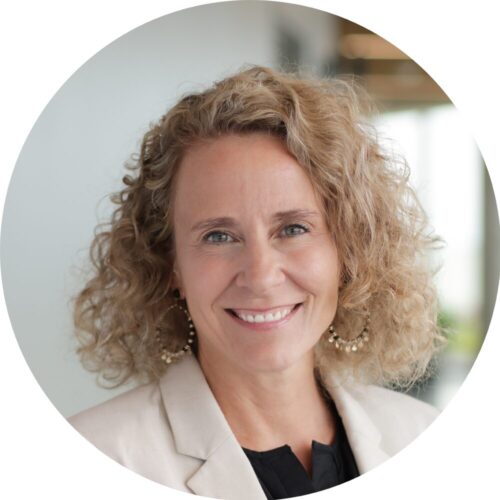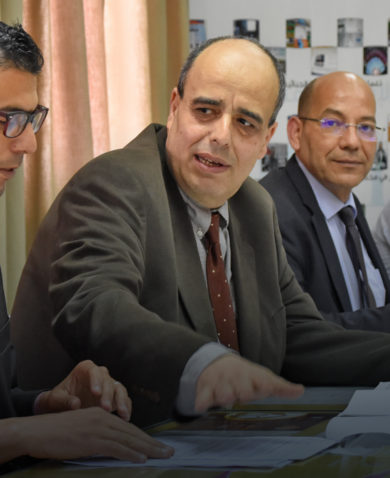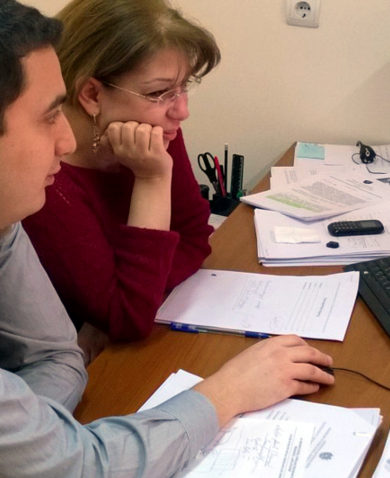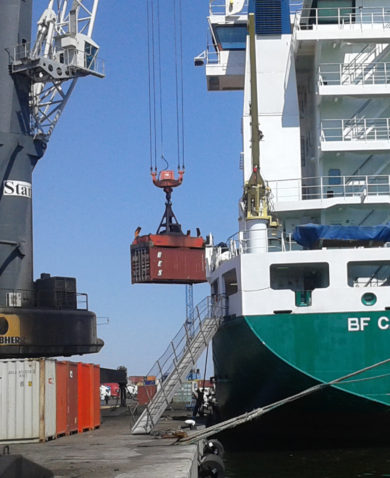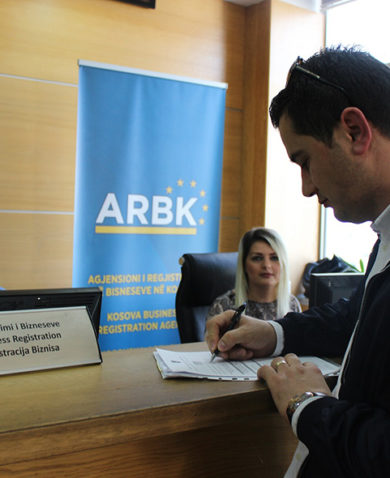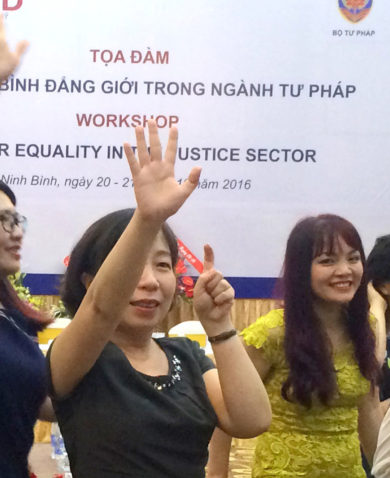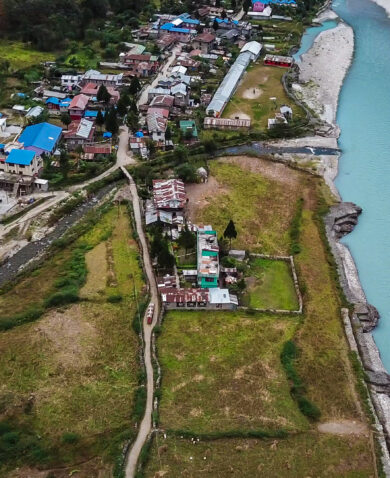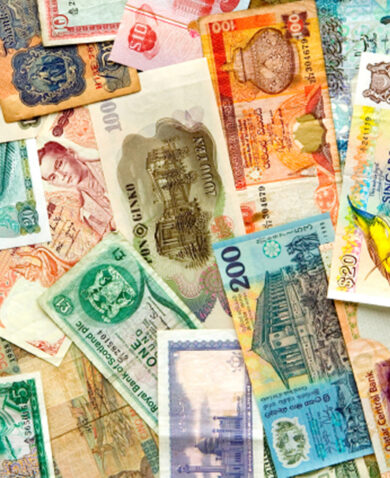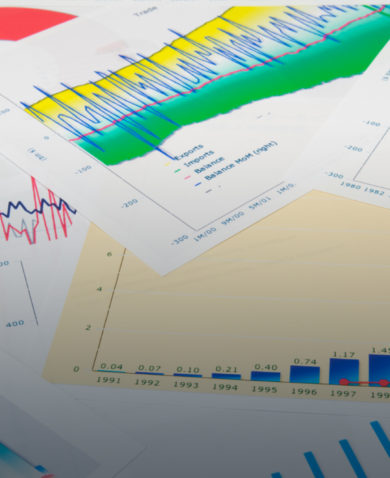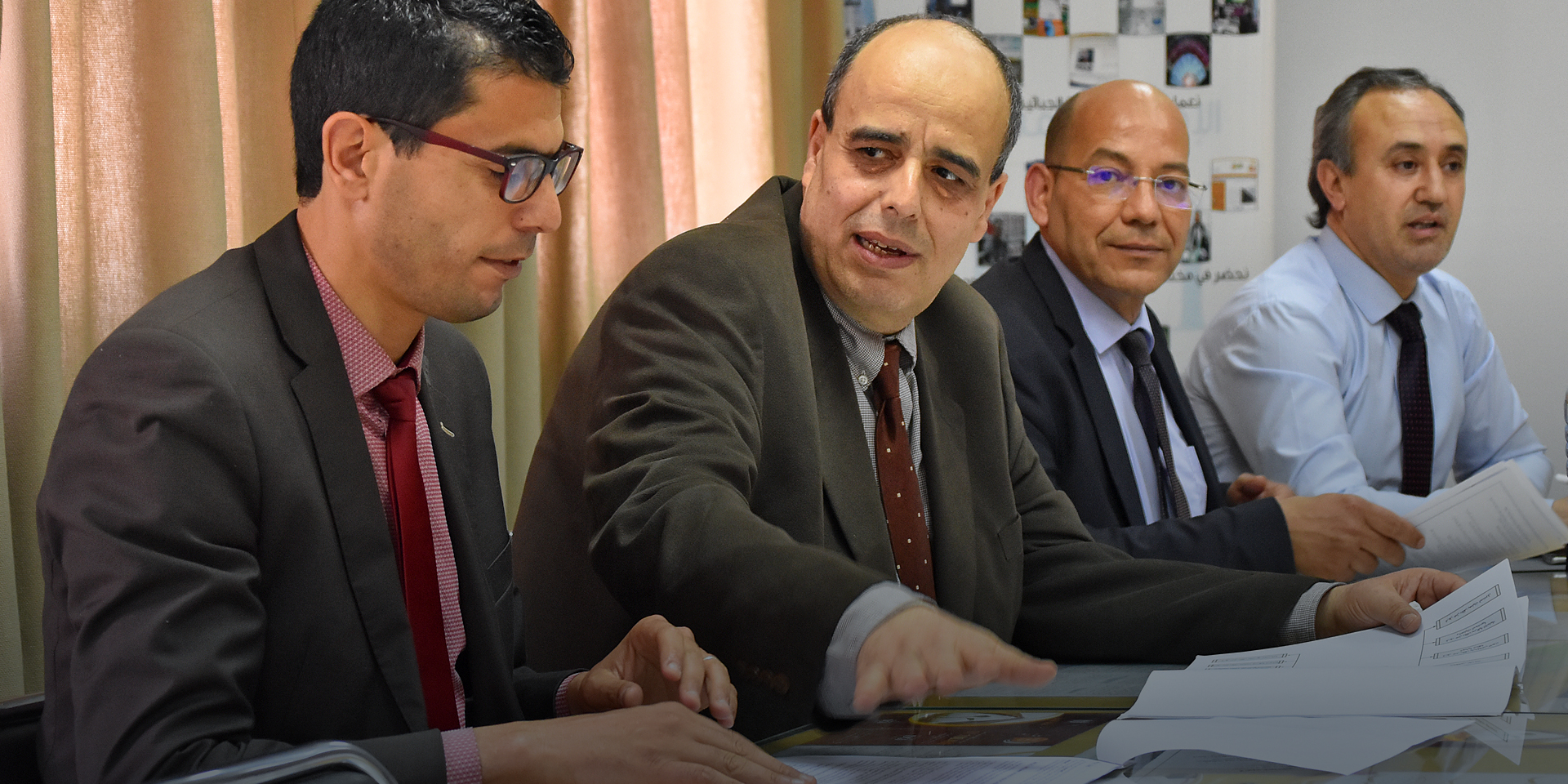
3 Questions With Melissa Scudo on Tax Reform for Economic Growth
July 7, 2015 | 3 Minute ReadThe Tunisia Tax and Customs Reform Activity works with the government of Tunisia on tax and customs reform. Here, Ms. Rahma Haidri with the Ministry of Finance’s tax policy unit speaks about the construction of a microsimulation model for the Value Added Tax.
Melissa Scudo is the team leader for the Tunisia Tax and Customs Reform Activity (TCP)—a two-year initiative to help the government of Tunisia bolster economic growth through tax and customs reform. TCP is part of Chemonics’ Asia and Middle East Economic Growth Best Practices (AMEG) project.
Regional turmoil makes this a challenging time to implement a reform project in the Middle East and North Africa. In a changing Middle East landscape, how does your work on tax reform fit into helping Tunisia achieve broader economic goals?
Tunisia had popular democratic elections last year with a high level of participation, and the population elected its first democratic government. Leading up to the revolution in Tunisia, there was an intense disparity between haves and have-nots and there was resentment among many people, particularly in areas outside some of the larger metropolitan centers, due to perceived inequality of opportunity.
Post-revolution, Tunisia is working to stand up on its own two feet. It has a population that is active and empowered and demanding change. And, this new government wants to respond. There’s a mandate for the new government to be legitimate and credible in the eyes of the people; a big piece of that is how the government uses the funds it collects, what it funds, and what it provides for the people. In implementing tax and customs reforms, the government of Tunisia wants to create a more fair and equitable system and a more level playing field that will open up Tunisia to investment, creating more jobs and opportunities.
Tax and customs policy can seem a little abstract for non-specialists. Can you talk about some concrete ways TCP’s work with its Tunisian counterparts is strengthening Tunisia’s economic standing?
With this new government, there’s an opportunity to extend the political revolution in Tunisia and to create an economic revolution. The new Minister of Finance took office in February and we work daily with the Ministry of Finance and other government departments to facilitate responsible, inclusive, and sustainable change. We are focusing now on the units that support the minister and provide him with the information needed for a tax reform package. We have been developing micro-simulation models because it is very important to base decisions on tax rate changes on sound data and analysis. Our team works with members of the Tunisian tax policy unit to strengthen their capacity to use data models, to interpret results, and to develop tax policy products and tools. The unit will look at what the government will be able to raise in revenue, what the effects of taxes will be on households, and how tax rate changes will affect citizens.
In our customs work, we conducted a mapping exercise of import and export procedures for the port of Radès – a port in Tunis through which seventy percent of trade moves. This was the first time such a mapping had been done and we observed what happens when a ship disembarks and the goods are released. We discovered that there are 51 steps and that more than 70 percent of those steps are manual. Every time a step is manual, it is an opportunity for individual discretion, so it’s a risk for lack of transparency. We are now examining the map and proposing opportunities to streamline the process. Improved processes will both reduce opportunity for corruption and enhance commerce.
What would you like the project to accomplish long-term?
We want the TCP to bring about better incomes for Tunisia and more equality; this will further Tunisia’s trajectory as a productive democracy. Ultimately, we hope that the individuals we are working with can take what they’ve learned and go to other countries in the region. The idea is that they can be the experts; they can explain this is where we started from, these are the tools that we have, here’s where we are now, and here’s how we did it. If we can strengthen our Tunisian partners’ expertise and have them share what they’ve learned in the wider region, that would be an incredible success.
“3 Questions” is a blog series offering quick takes from development experts on issues that matter. Know someone we should interview? Leave your suggestion in the comments!

